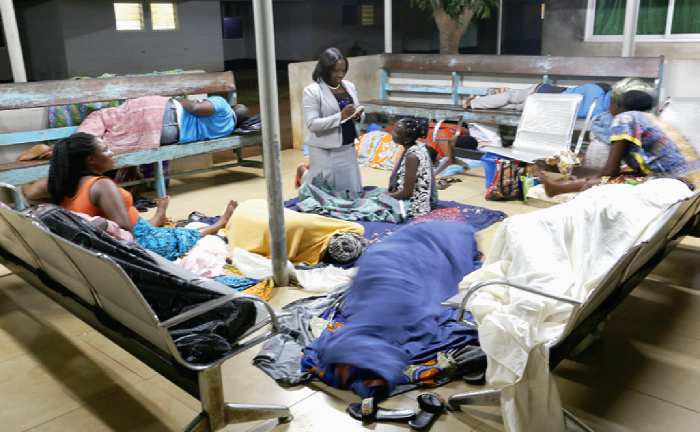
Stop the "No Bed" excuse – Arthur Kennedy
Once again, today, someone sent me the story of a father who died after taking ill in the night because three hospitals declined to provide care because there were "no beds"!
I won't bore you with the all too familiar and numbing details.
Everyone has a bed at home, presumably. So, when someone is rushed from their house in the middle of the night to a hospital, they are not there to look for a bed; they are there to seek MEDICAL CARE!
For a person in heart failure, maybe, after appropriate tests, all that may be needed is a shot of Lasix and oxygen.
For an Asthmatic, after tests, they may just need oxygen and a nebulizer treatment.
For someone having a heart attack, Nitroglycerin, Oxygen and Morphine may be life-saving.
For someone weakened from nausea, vomiting and diarrhoea, I.V. fluids might be all that they need.
While having a comfortable, clean bed would be ideal, a lot of these treatments can be rendered to a patient on a blanket on the floor.
And not all of these patients would require a bed for admission. Indeed, it can be argued that even when patients need subsequent transfer, stabilising them significantly improves their chances of survival.
Thus, it is unacceptable for health facilities to just send a nurse or worker out to tell the family, "There is no bed. Go to Korle-bu/Ridge etc."
It is amazing that we have Applications/Systems that can tell a person where to get banku in Accra but not which hospital has beds.
We need a system with staff looking at real time data who can tell patients where to go. Driving from hospital to hospital in search of a bed is past. It belongs to the last century.
In 1986, the Americans passed the Emergency Medical Treatment and Active Labor Act (EMTALA) that requires participating hospitals to provide "appropriate Medical Screening Exams" to all patients. In other words, hospitals are required to screen and stabilize patients before transfer. We should consider a similar law in Ghana.
Of course, an Emergency Medical system would render early care and with up-to-date information, transfer patients to where they can get timely, appropriate care.
These challenges are not a reflection on our hardworking doctors and nurses. They reflect a poverty of policy-making and competent leadership.
As Rev. Martey once asked plaintively, "AyansafoƆ no wƆ hen?".
May God help Ghana.
Arthur K
Email:
